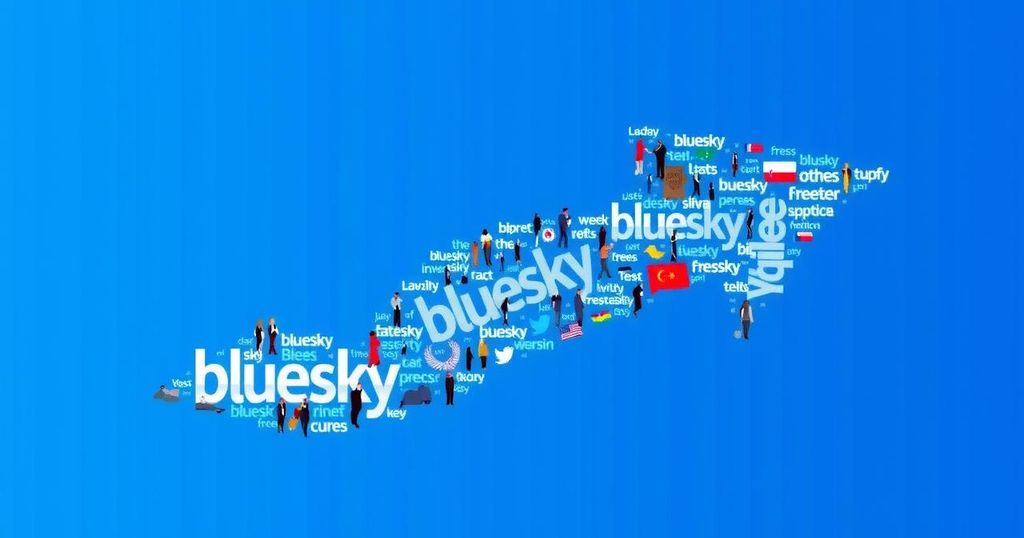Bluesky has gained over one million users since the recent U.S. presidential election, increasing its overall user count to approximately 15 million. This growth is largely due to users disillusioned with X, which is seen as increasingly toxic under Elon Musk’s ownership. Major organizations like The Guardian have ceased activities on X, highlighting a shift towards platforms perceived as more welcoming and less biased.
In the wake of the recent U.S. presidential election, Bluesky has experienced a significant surge in user registrations, attracting over one million new users and bringing its total to approximately 15 million, an increase from the nine million reported in September. This trend reflects a marked shift among individuals dissatisfied with the direction taken by X, the platform formerly known as Twitter, under its billionaire owner, Elon Musk. Since Musk’s acquisition in October 2022, X has witnessed a decline in user trust, primarily among more left-leaning demographics dissatisfied with the platform’s evolving atmosphere and content standards. Bluesky, initiated by former Twitter CEO Jack Dorsey in 2019, has quickly established itself as a sanctuary for users disillusioned by the perceived political biases and increased intolerance exemplified on X. Notably, after the election results, considerable dissatisfaction among users prompted a mass exodus from X, as evidenced by data from Similarweb, which recorded roughly 115,000 account deactivations in the U.S. on the day following the election—the most substantial single-day exit under Musk’s management. The Guardian newspaper also recently declared its decision to cease content publication on X, citing its position as a “toxic media platform” rife with disturbing content such as racism and conspiracy theories. The publication justified its withdrawal by stating, “The US presidential election campaign served only to underline what we have considered for a long time: that X is a toxic media platform and that its owner, Elon Musk, has been able to use its influence to shape political discourse.” Amidst this changing landscape, Bluesky has actively promoted itself as a refuge for progressive individuals, emphasizing its commitment to maintaining a supportive environment free from extreme political influences. Following reports of Musk’s collaboration with Donald Trump, Bluesky asserted its intentions by stating that its team would refrain from providing any presidential candidate with direct control over what users could access online. While X still maintains a larger user base than Bluesky, the continued pattern of user disengagement raises concerns about its long-term viability. The recent exodus exemplifies shifting social media dynamics, where users are increasingly prioritizing platforms aligned with their values and priorities.
The topic of user migration from X to Bluesky arises amid the broader narrative of dissatisfaction with social media platforms, particularly regarding content management and political discourse. Since Elon Musk’s acquisition of X in late 2022, the platform has been the focal point of controversy due to claims of bias and the proliferation of hate speech and misinformation. As users seek alternatives that resonate with their ideological beliefs and offer a more moderated experience, Bluesky has strategically positioned itself to attract these disaffected individuals, creating a new demographic landscape in social media.
In summary, Bluesky’s adeptness in attracting over one million new users post-election underscores the growing discontent with X under Musk’s control. With notable withdrawals from content distribution by reputable organizations like The Guardian, coupled with user statistics indicating substantial account deactivations, Bluesky appears to be carving a niche amidst shifting social media preferences. As the landscape evolves, the implications for X and similar platforms could shape future user engagement and platform policies.
Original Source: www.aljazeera.com






